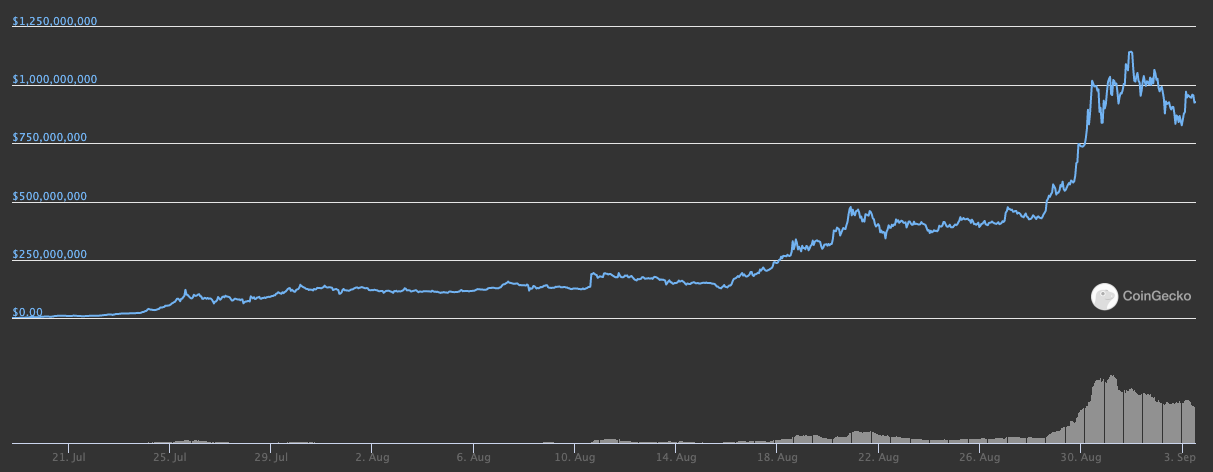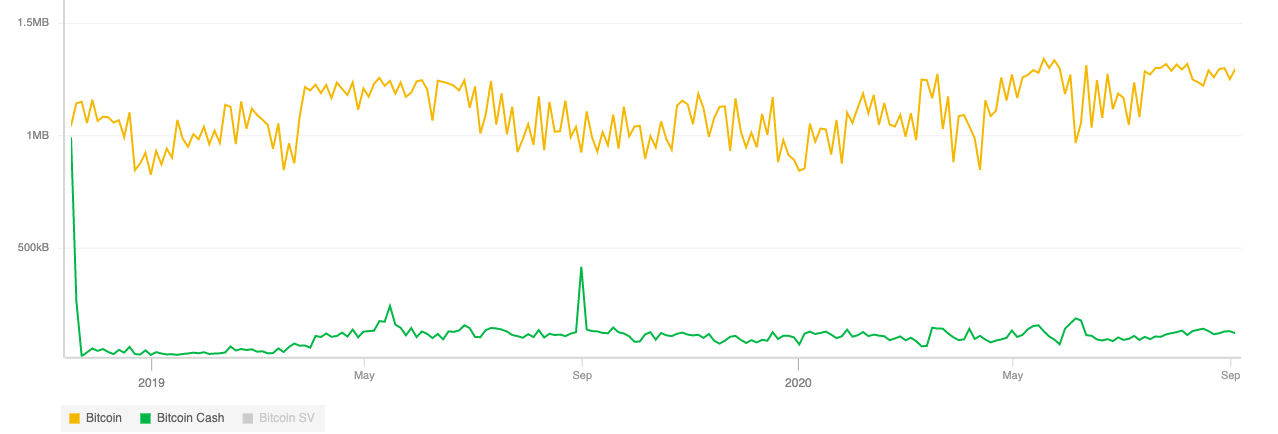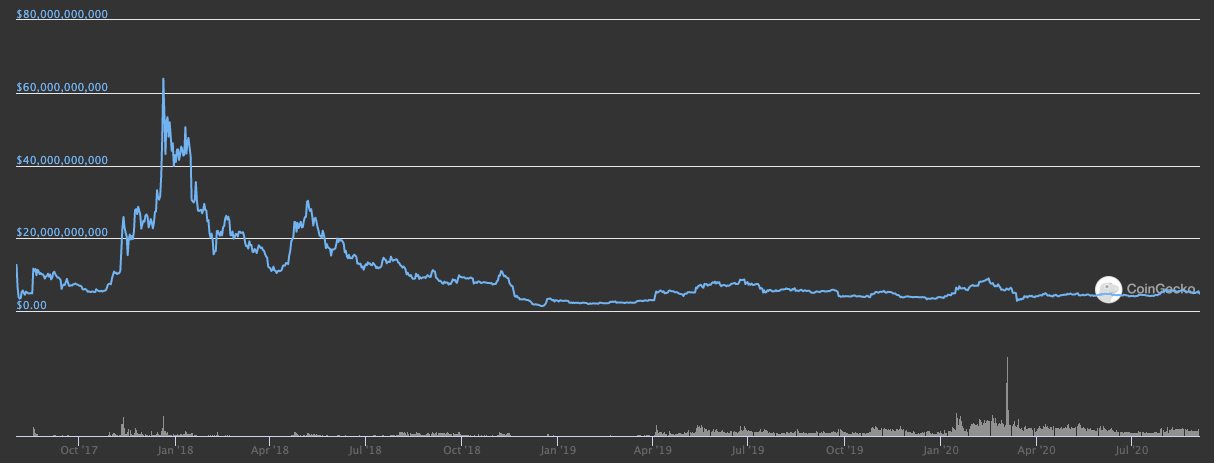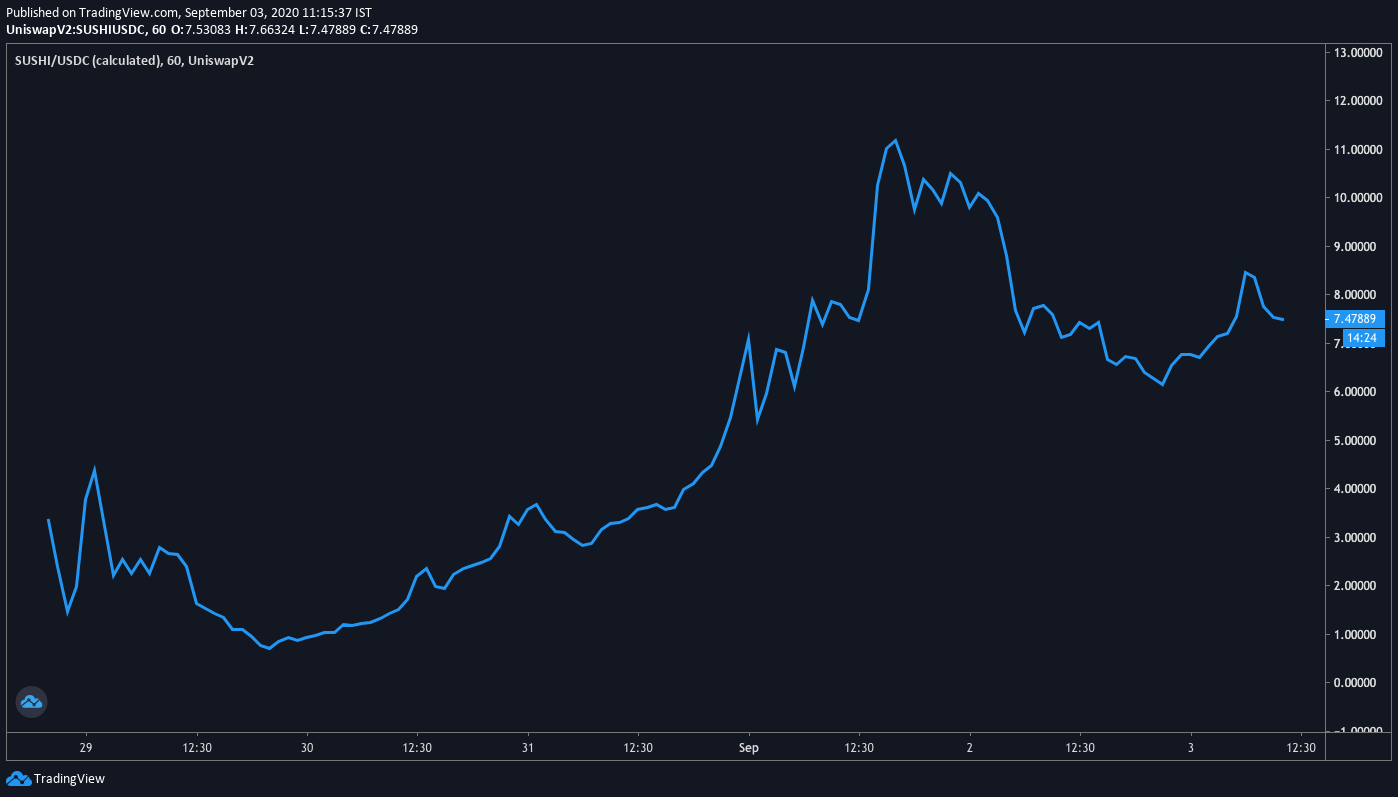Key Takeaways
- Vibrant communities are the essence of a crypto network as they aid organic growth and marketing.
- Bitcoin versus Bitcoin Cash is the prime example of how crypto markets view unoriginal forks that change a few small features.
- DeFi forks that do build communities still have to compete with the original protocol on the basis of features and value addition.
Share this article
DeFi forks are popping up everywhere. Unfortunately, they fail to become anything more than a “farm and dump” scheme due to a lack of genuine community. And even the few projects that do establish an early community, the future is murky.
The Lifeblood of a Crypto Token
The term “community” gets thrown around a lot in crypto. But what does it actually mean?
A community is a group of investors, users, and developers that support and supplement a particular crypto network. In an open-source ecosystem, communities are arguably the most important aspect of a project as they help create value through usage, adoption, and organic marketing.
If a protocol’s technology gives it substance, its community gives it life.
Communities are strengthened when they’re grouped under a similar identity. LINK Marines, Synthetix Spartans, and Band Jedis are a few examples of communities that have been meme-ed into existence.
yEarn Finance (YFI) is another great example of how a robust community can grow a project. YFI went from $0 to $1 billion in market cap in just a month. But this wasn’t empty growth. yEarn provided real value for the DeFi community and saw large blocks of capital enter the protocol.

Several copycats have attempted to recreate yEarn’s success to little avail. While a few have molded their own communities, they rarely rival the original protocol.
This is not a new concept. Time and time again, the crypto market has emphasized that it prices originality and innovation with a stark premium.
The oldest examples date back to the genesis cryptocurrency – Bitcoin.
How Community Consensus Kept Bitcoin’s Moat Alive
In 2017, the Bitcoin community had its first major split. One side favored a smaller block size with SegWit to reduce the size of each transaction. The rest wanted to increase Bitcoin’s block size limit from one MB to two MB.
A large part of the community backed the smaller block size, which meant that version of the blockchain would continue as the original Bitcoin. The big blockers forked away from this network, forming Bitcoin Cash (BCH).
When this happened, many investors and analysts weren’t sure what effect this would have on Bitcoin’s market valuation. Raoul Pal, the founder of Real Vision and GMI, previously remarked that he believed the fork would dilute Bitcoin’s value, so he sold his coins.
What these investors didn’t realize back then is that users forge the value of a network.
When the small blockers won the battle for consensus, a ton of people who supported the big block ideology ended up conceding and moving forward with smaller blocks. Only a fraction of initial supporters eventually went on to become full-time Bitcoin Cash community members.
Initially, the market was confused, and Bitcoin Cash did well. But after a while, reality settled in. From the perspective of the crypto market, there were now two Bitcoins.
Eventually, it boiled down to one with most of the community and activity, and another without these characteristics but a slightly larger block size.
The decision of which to back and which to abandon was immediately evident.
Since then, Bitcoin Cash has raised its block size to 32 MB. Yet it’s daily average block size hasn’t crossed 500 kB since November 2018.

BCH has been consistently losing value since it forked. It peaked at $3,700 per coin in 2017 versus BTC’s near $20,000. Its market cap is down 91% since the 2017 top, while BTC is down just 34% over that same period.

The Bitcoin fork episode is proof that the crypto market doesn’t value forks that improve one minor parameter and claim to be superior. At the end of it all, the original community-backed Bitcoin emerged as the real Bitcoin.
DeFi Forks: Some Succeed, Most Fail
yEarn Finance isn’t the only DeFi protocol being mimicked. Forks of Ampleforth, Compound, and others are showing up in the dozens.
SushiSwap is the newest fork that gained traction. At one point, over 70% of Uniswap liquidity tokens were locked in SushiSwap, but it is yet to facilitate a single dollar of trade. Now the project looks to have hit a dead-end after its sole developer sold the entire developer’s fund.
To think a cloned project can immediately jump in and steal an established player’s traction is berserk.
However, SushiSwap is one of the few forks that had genuinely built a healthy community.
Ampleforth forks Based and Yam have also incited healthy community support, as has yEarn clone DFI Money. But these are just four isolated examples from the 100+ duplicates that have surfaced in the last month. A vast majority of them have already crashed and burned.

Digging deeper into the changes these forks made reveals their actual agenda.
AMPL’s token distribution allocated only 25% of the supply to the general public. This has been perceived to be unfair. Yam was the first mover that forked AMPL and changed the distribution, so the community receives 100% of the tokens.
yEarn had a fair token distribution, so there wasn’t anything to change. But DFI Money still captured an ardent group of supporters by claiming to be the “YFI of the East.”
A vocal segment of the DeFi community was upset by Uniswap’s decision to raise capital from VC funds. SushiSwap’s elevator pitch is that it’s a Uniswap clone that forks away from the VCs with 90% community distribution and a 10% development fund.
The narrative behind SushiSwap helped it rally a community of people frustrated with Uniswap’s funding decision and want the protocol to be governed by its users.
Apart from DFI Money – which is a cultural play – the common angle amongst successful forks is focus on token distribution.
Hey @haydenzadams I’m not sure why you deleted the reply. But let me reply here.
I said I was a #builder because @willwarren89 implied I was not.
Now for builder rewards, I think protocol should reward participants (LPs), not creators. If you want rewards, do your own ICO. pic.twitter.com/EmhV6DBdEo
— Chef Nomi #SushiSwap (@NomiChef) August 30, 2020
If a fork makes meaningless changes like, say, the rebasing target or liquidity pool weights, nobody bats an eye. But when these projects say “we’re giving all our tokens to you guys,” the excitement is far more tangible.
A fork like SushiSwap can muster attention, but at long last, there’s no point if it never releases its DEX to compete with Uniswap. Further, Uniswap is building v3, which introduces new features that make it more capital efficient and offer LPs better terms.
SushiSwap is a fork of Uniswap v2, so feature-wise, it cannot live up to Uniswap v3. And, as it turns out, the SushiSwap creator wanted to fork away from the VCs, so they had the sole privilege of dumping on the community.
Notwithstanding the recent controversy, Sushi is a far cry from Uniswap competitor, because when v3 releases, traders will inevitably gravitate towards the better solution.
Building a strong community early on is useful. But keeping the community around over months and years isn’t as easy.
Share this article
SushiSwap Experiment Serves Harsh Lesson for DeFi Community
SushiSwap’s anonymous creator abandoned the project after cashing in on $13 million of tokens allocated to the development fund. Control of the project now rests in the hands of Sam…
Bitcoin Cash Companies Are Taking Sides; Mining Tax Will Die On Arriva…
Companies in the Bitcoin Cash ecosystem have largely rejected plans to add a controversial mining tax during this November’s upgrade, as evidenced by text fragments included in recently mined blocks….
Understanding Position Sizing
Let’s briefly examine the most important aspect of any trading system, position sizing, or specifically how much we will bet on any one given trading idea.
yEarn Finance Is Turning Every DeFi Trader into a Whale
A mini-revolution is brewing in DeFi thanks to yEarn Finance, giving retail investors the chance to participate in the most lucrative yield farming opportunities. From Humble Beginnings Crypto Briefing spoke…


